The receding of the Congress tide
I have no tears to shed over the reversal of the Congress in most of the five assembly elections—Assam, Kerala, Tamil Nadu, West Bengal and Puducherry. The party must be feeling completely shocked, and should have been searching for reasons. But it has not yet come out from the illusion that its main strength is the dynasty.
So obsessed is it with this idea that the posters the party had put up for the polls carried the picture of Robert Vadra, Congress president Sonia Gandhi's son-in-law, who has been found tangled in land deals going back to the time when the Congress ruled Haryana.
The aspect which disturbs me the most is the success of the Bhartiya Janata Party (BJP). It is gaining ground. Indeed, in all the five elections where it did not win the majority, the BJP has increased its vote share. This means that its credibility is increasing, not decreasing.
This should give alarming signals because it conveys that Hindutva, the death knell for secularism, is gaining strength. Had the BJP been on its own it would have sooner or later fallen into the pattern other political parties follow. But the BJP is supervised by the Rashtriya Swayamsevak Sangh (RSS), which wants to convert the pluralistic India into a Hindu rashtra.
Despite this trait, which goes against the grain of secularism, the BJP is marching ahead. It is not that Indians, tolerant by nature, are losing their basic quality. It is because people are sick of corruption in every sphere of government activity, and they rarely find any scams or scandals tumbling out of the BJP.
Manmohan Singh was the best face the Congress had. Yet, scandals like the Commonwealth Games and coal block scams took place during his regime. In fact, it looks like he gave the best cover the party could have to indulge in rampant corruption. There is now enough evidence in the public domain to prove that Sonia Gandhi on the "advice" of her political secretary, Ahmed Patel, collected as much money as she could to oil the party machinery and the elections which the party fought.
True, Congress is becoming relevant because of BJP's parochialism. But the party's vice-president Rahul Gandhi does not have the stature which Prime Minister Narendra Modi enjoys. Therefore, if people were to be given a choice in the next Lok Sabha election between Modi and Rahul, the current PM may win hands down.
There is yet three years' time for the Lok Sabha polls. The non-BJP and non-Congress parties can cobble together some sort of an agreement, whereby they do not split their votes. They will have to decide upon the leader because people in India vote for the would-be Prime Minister, although we do not follow the presidential form of government. Whether or not the latter would be more suited to us is another debate.
One thing which is indeed worrying is the inroads that the BJP has made in Assam. But this is primarily because the migration of people from across the border was encouraged by the Congress itself. The then Congress leader, Fakruddin Ali Ahmed, who later became the president, would openly say that they won the election with the votes of 'Ali and coolie.' He was referring to Muslims when he said 'Ali' while the labourers from Bihar were termed as 'coolies'.
If Assam were to reopen the question of "outsiders", thousands of people would come under this category. We have gone over this problem earlier and have uprooted and deported many people on this ground. When only Muslims are ousted and no Hindu is even questioned, the problem takes a communal turn. Should India, claiming to be a pluralistic and democratic polity, be doing so? And if it does, should the society claim to be secular?
Since Congress does not count much, at least for the time being, which party is capable of leading the fight against communalism is the question that stares at the face of the society. There is no doubt that leftist forces are committed on this point. But then they do not sell any more. Even after over 65 years, when the first communist government was established under communist ideologue EMS Namboodiripad in Kerala, the party has made no headway.
It is true that the magic of Narendra Modi, although less than what it was before, still has the power to capitivate. His future depends on the jobs he provides, and how far he is able to raise the standard of living in the country. True, economic betterment can give a cover to the fundamentalists. But the development would have to be real, not a mere slogan as has been the case so far.
Fundamentalism would also have to be toned down. Modi realises that and therefore, has not taken any policy decision which indicates that the country has swerved from the path of secularism. His main problem is the RSS, which wants to saffronise the country as much as it can in the next three years when Modi's five-year tenure ends. Undoubtedly, Modi would want to return as the Prime Minister. But if by then the RSS shows its true colours, the BJP's return to power will be difficult.
The pattern of voting and the places where the BJP has won show that the party has uprooted a well-entrenched Congress. What it means in real terms is not the success of the BJP's ideology but people's exasperation over corruption in the Congress. If Modi or, more so, the RSS were to learn this lesson, the BJP could become more and more relevant as the time goes by.
The writer is an eminent Indian columnist.
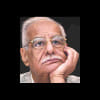
 For all latest news, follow The Daily Star's Google News channel.
For all latest news, follow The Daily Star's Google News channel. 

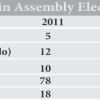
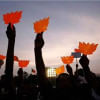
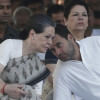
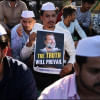



Comments